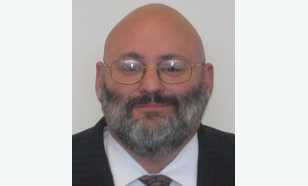Leonard Deutchman

June 03, 2014 | The Legal Intelligencer
The Best Way to Learn About Requesting E-DiscoveryAttorneys for whom I consult will often ask me what the best way is to learn how to request e-discovery. I usually joke, "Other than taking one of my CLEs?" and then tell them that the best way to learn what to ask for in e-discovery is to have to produce it.
By Leonard Deutchman
8 minute read

May 06, 2014 | The Legal Intelligencer
Discharging Ethical Duties Regarding E-Discovery, Part IIIt has been more than 18 months since the American Bar Association amended its comment to Rule 1.1, pertaining to competence, to require that lawyers "keep abreast of changes in the law and its practice, including the benefits and risks associated with relevant technology." In my last column, we discussed how to learn about e-discovery, some general rules involving it and how to build a map of the data universe from which you will have to produce responsive documents and withhold privileged ones. In this month's column, we will discuss the ethics of preservation and collection, searching and review.
By Leonard Deutchman
9 minute read

April 01, 2014 | The Legal Intelligencer
Discharging Ethical Duties Regarding E-DiscoveryIt has been more than 18 months since the American Bar Association amended its comment to Rule 1.1, pertaining to competence, to include the following important language:
By Leonard Deutchman
8 minute read

March 04, 2014 | The Legal Intelligencer
Why the Fuss to Change Rule 37(e)?The comment period on the proposed changes to the Federal Rules of Civil Procedure closed Feb. 15. As that date approached, many parties weighed in, not all of them agreeing on everything, but all pretty much approving of the changes to Rule 26(b)(1), which repositions the requirement that the discovery demand be proportional to the value of the matter, and Rule 37(e), which appears to make it harder to prove a producing party liable for spoliation and which restricts the sanctions and other restorative measures a court can impose or require upon a finding of spoliation.
By Leonard Deutchman
8 minute read

February 04, 2014 | The Legal Intelligencer
In Finding NSA Search Constitutional, Clapper Gets What Klayman MissedIn American Civil Liberties Union v. Clapper, the U.S. District Court for the Southern District of New York found constitutional the ongoing program of the National Security Agency and FBI to obtain telephony metadata in bulk from telephone carriers and Internet service providers.
By Leonard Deutchman
8 minute read

January 07, 2014 | The Legal Intelligencer
In NSA Search Ruling, Court Misses a Step to Make a PointIn Klayman v. Obama,, the U.S. District Court for the District of Columbia enjoined the National Security Agency and FBI from receiving telephonic metadata in bulk from telephone carriers and Internet service providers under the provisions of the Foreign Intelligence Surveillance Act and Patriot Act.
By Leonard Deutchman
11 minute read

December 03, 2013 | The Legal Intelligencer
Is the Proposed Amendment to Rule 26(b) a Disproportionate Response?It is hardly news that amendments to the Federal Rules of Civil Procedure have been proposed and are generating considerable reaction. A careful look at some of them, however, will make the reader wonder whether the amendments are actually adding anything or are adding a great deal not by what they say but by what they imply. In this month's column, we will look at the proposed changes to Rule 26(b).
By Leonard Deutchman
8 minute read

November 05, 2013 | The Legal Intelligencer
The Commoditization of E-Discovery Doesn't Add UpLike many of you reading this column, I get bombarded with emails that provide links to innumerable articles and opinion pieces about e-discovery.
By Leonard Deutchman
8 minute read

May 18, 2010 | The Legal Intelligencer
To Avoid 'Plain View,' Investigators Need BlindersIn last week's column, I wrote about cases from the 1st, 4th and 7th U.S. Circuit Courts of Appeal that applied the plain view doctrine to computer searches. This column discusses the 9th Circuit's opinion in United States v. Comprehensive Drug Testing, which rejected the doctrine, and looks at the pros and cons of both approaches. Comprehensive Drug Testing concerned the well-known "Balco," or Bay Area Lab Cooperative, investigation by the federal government of steroid use by Major League Baseball players, particularly those who were suspected of having received steroids from Balco.
By Leonard Deutchman
25 minute read

February 22, 2010 | Corporate Counsel
Seeking Legal Ground in Unallocated SpaceIn an earlier article, attorney Leonard Deutchman discussed how a Delaware court relied upon unjustifiable technical conclusions to find a defendant in contempt of court for wiping the unallocated space on a hard drive. He now examines the court's legal conclusions and their implications.
By Leonard Deutchman
24 minute read
More from ALM
- Legal Speak at General Counsel Conference East 2024: Match Group's Katie Dugan & Herrick's Carol Goodman 1 minute read
- Legal Speak at General Counsel Conference East 2024: Eric Wall, Executive VP, Syllo 1 minute read
- Legal Speak at General Counsel Conference East 2024: Virginia Griffith, Director of Business Development at OutsideGC 1 minute read



